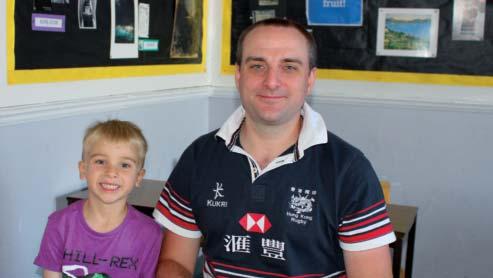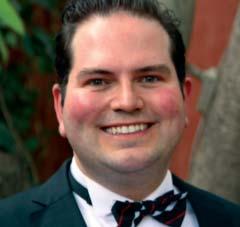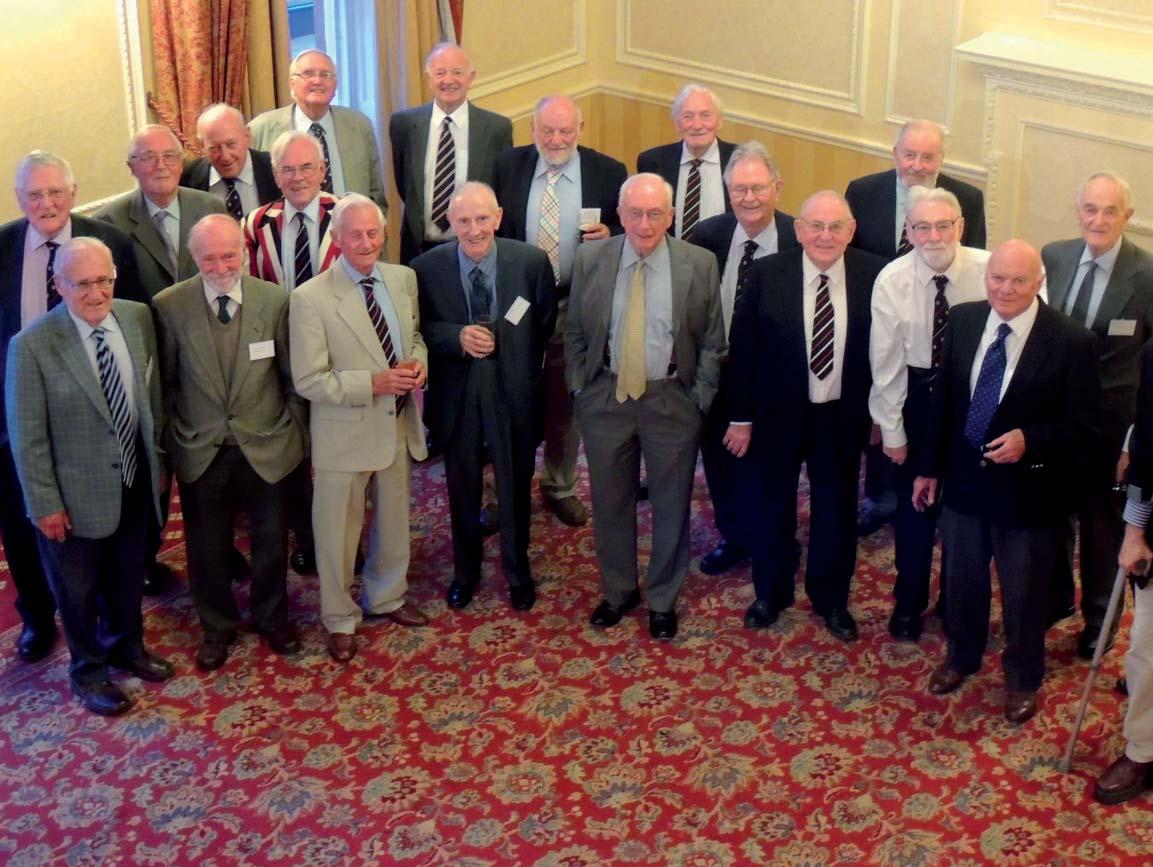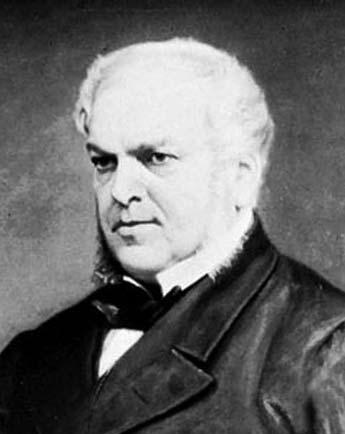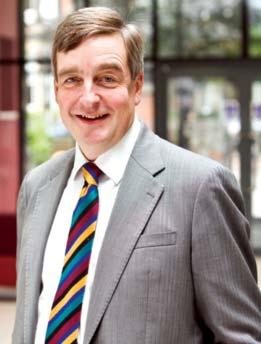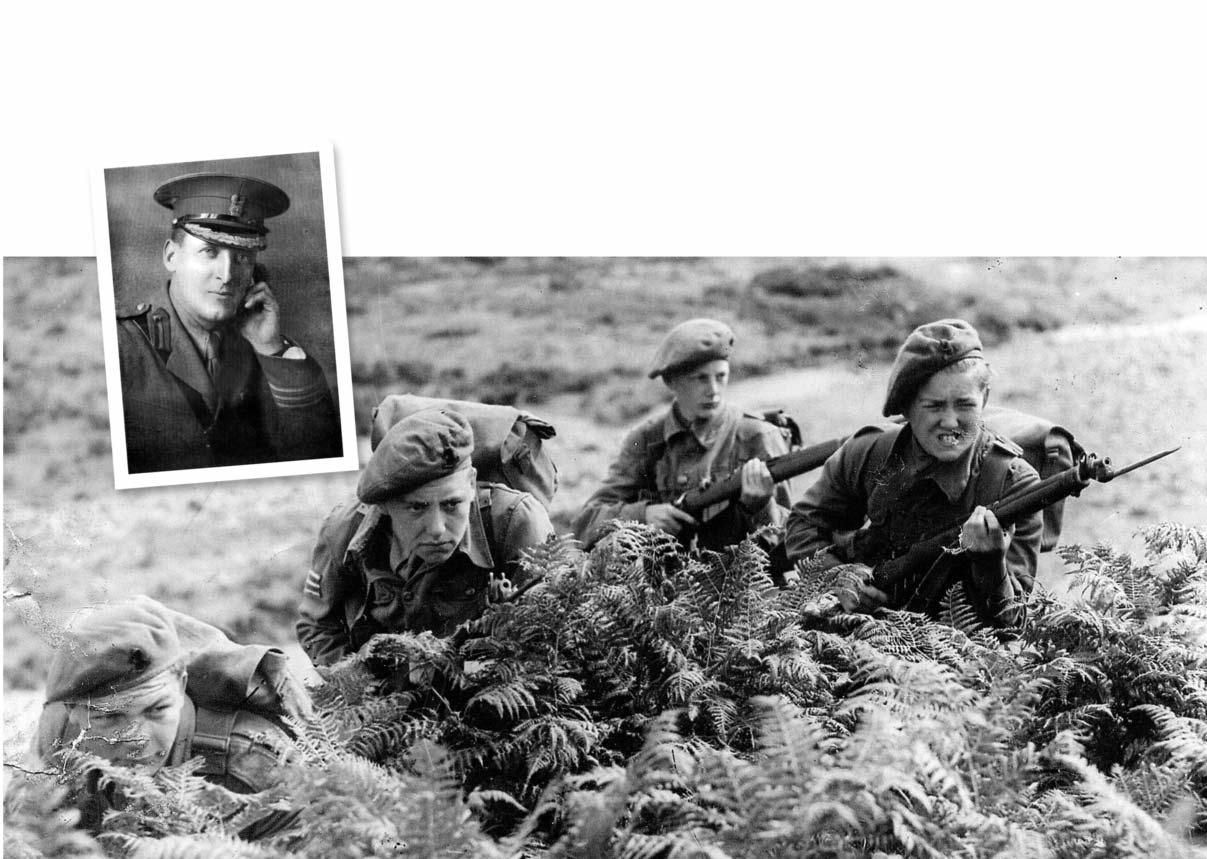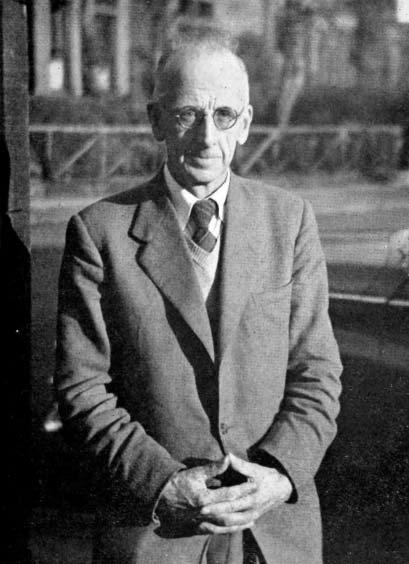
5 minute read
Tour de Force
from ONA 93
By Pete Self (99-09)
I studied Politics and International Relations at the University of Leeds, graduating with a 2:1. University seemed to go very quickly for me and was a fantastic three years of my life. I ran bar and nightclub events during my time at university as a means to make more money. I joined the military Officers’ Training Corps (O.T.C.) in my first year and then decided to transfer to Military Intelligence in the Army Reserve.
Advertisement
Pete as a special constable in West Yorkshire on his last day before full-time police training with the Metropolitan Police
Unfortunately no Martinis or Aston Martins as it is on the grittier side of the military, as opposed to the civilian MI6! It was a very interesting time for me but unfortunately can’t speak too much about it. I had two opportunities to deploy full-time – to the Olympics and frontline in Afghanistan but I could not due to the fact I was still a student. I look back at it now with a bit of sadness, as I did not fully grasp all the opportunities that were presented to me.
It was during my service in the Army that I met a number of people who served in the Police and I was immediately interested. Of course, I was aware of the cutbacks in the UK and the lack of recruitment in any force. It was then when I found out about the Special Constabulary. Special constables are volunteer police officers who do exactly the same job as regular police pfficers, but without pay. You go through a similar training package and have the same sort of opportunities offered to you as you progress throughout your career. Special constables come from all walks of life – I have met doctors, businessmen, cleaners, electricians and plumbers who have all given their free-time to police the streets. As I had a full-time career with the Police in mind, it was a fantastic insight into knowing truly what the Police is about and managing my expectations for when recruitment finally opens up.
I began training with West Yorkshire Police in July 2011, attesting onto patrol in December. Due to the fact I was at university I could commit far more than the minimum 16 hours that were asked of
me, often putting in about 60, on average, a month. Due to this I managed to achieve Independent Patrol status (something that usually takes two years) by June 2012. The force has changed drastically due to the cuts in recent years with a huge emphasis being placed upon special constables to offer additional coverage in service.
West Yorkshire Police is currently aiming to recruit 1,500 special constables by the end of next year, which is going to increase the establishment from 500 to 2,000. With this the opportunities for specials have grown and grown, such as Operation Viper in West Yorkshire. Operation Viper is a specialist operation that targets criminals who commit serious acquisitive crime. It has been a resounding success for the Police, reducing crimes such as burglary by 30%. Where I policed (the student areas of Hyde Park and Headingly) we saw a drastic reduction in crime. Only a few years ago burglaries and thefts in this area were more common than rare so it was a great result. With Viper, the opportunity to work with specialist policing teams arrived. I worked with the Road Crime Team who target those involved in serious crime on the road networks, and also dealing with those who commit burglaries and robberies.
I was also attached to a very busy 999 Response team for my divisional duties. As well as above I have policed the Olympic Torch parade in Leeds, numerous public events including the rugby at Headingly Stadium and my final shift was policing the Tour De France’s first stage in Yorkshire, which drew a crowd of over one million. Other opportunities just to sum up have included: Dogs, Traffic, OSU (Riot Squad), CID, Robbery Squad, Burglary Squad, Police Paramedic, Plain Clothes and Crime Scene Investigation. A truly fantastic experience.

Custodian helmet worn by Pete on his last day as a special when policing the Tour de France in Yorkshire, May 2014
I was accepted after a gruelling assessment for the Metropolitan Police as a full-time police constable and I commenced my training in September, having been based in a West London borough. Although a completely different sort of policing, I hope the experience I have gained as a special will pay dividends.
Of course while I have worked in a number of voluntary jobs I have had to find a career that also pays! I worked with Michael Page International as a consultant straight after leaving university. Then from there I joined a leading international security and CCTV company as a sales executive selling bespoke security systems to governments and private corporations across the globe. Both interesting experiences, but did not catch my interest in the way that the military and Police did.
Unfortunately the Police Service is still suffering from cutbacks currently, and this is why I wrote the article. If you are aspiring to join (and this could be the case for some years) joining as a special constable in your own home force is your best bet. Of course you can even make a career from being a special as it has its own rank system. Some police forces are recruiting externally but the vast majority are recruiting from current specials and police community support officers. It is a very competitive process with tens of thousands of applicants for very few jobs. I have helped numerous people with their applications to both the Police and Army Reserve, so if this is of interest please ask for my contact by emailing ona@ rgs.newcastle.sch.uk

